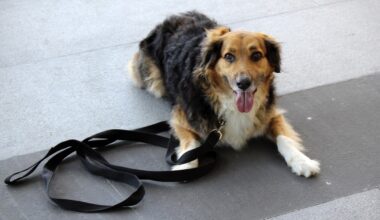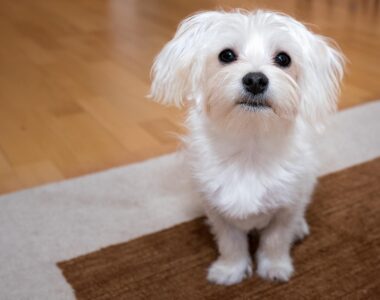Training Tips Specifically for Maltese Dogs: What Works Best
Maltese dogs are known for their charming personalities and incredible intelligence. Training them can be an enriching experience for both the dog and the owner. Start by establishing a routine that includes regular training sessions. Consistency is crucial for Maltese; they thrive when they know what to expect. Choose a quiet place free from distractions for your training sessions. This helps the dog focus better and learn more efficiently. Positive reinforcement is key; use treats, praise, and play as rewards. This encourages your Maltese to repeat the behaviors you desire. Keep training sessions short—around five to ten minutes—to maintain their attention span. Gradually increase the complexity of commands. Start with basic commands like “sit” and “stay” before progressing to advanced tricks. Make use of high-value treats, which can motivate your Maltese effectively. Be patient and celebrate small wins during the training process. This builds their confidence and strengthens your bond. Remember to socialise your Maltese regularly to ensure well-rounded behavior because interaction with other dogs leads to a balanced temperament.
Another key aspect of training Maltese dogs involves early socialization. As puppies, they are eager to explore the world, making this a good time to introduce various environments, people, and other animals. Incorporate a diversity of experiences, like visiting parks or encountering other pets. This exposure helps them develop confidence and reduces anxiety in unknown situations later in life. When you socialize your Maltese, focus on positive encounters. Always reward good behavior with treats or praise during these experiences. This positive reinforcement teaches them how to behave in different settings. It’s also essential to set boundaries early. Maltese can sometimes exhibit stubborn behavior, making it necessary to establish what’s acceptable and what isn’t. Use firm but gentle corrections to guide them. It’s important to remember that discipline should never be harsh; this can damage the trust you are trying to build. Instead, redirect unwanted behaviors with a positive spin, encouraging the dog to make better choices. In summary, consistent training and early socialization can lead to a well-mannered and happy Maltese.
Using Positive Reinforcement Techniques
Utilizing positive reinforcement techniques is particularly effective with Maltese dogs. They respond best when their efforts are met with enthusiastic rewards. Always keep a stash of your dog’s favorite treats on hand during training sessions. This makes it easy to reward them promptly after they perform the desired behavior. However, it’s important to choose healthy treats that won’t add too many calories to their diet. Additionally, consider incorporating playtime as a reward. After mastering a command, engaging in a game can reinforce what they have just learned. Remember that consistency in rewards will strengthen the connection between behavior and reward in your dog’s mind. Another effective strategy is to mix up the types of rewards. Sometimes use high-value treats, while at other times, offer verbal praise or affection. This variety keeps training exciting, ensuring your Maltese remains engaged and happy during sessions. Furthermore, try to avoid using punishments during training. Instead, shift your focus to redirecting unwanted behaviors and encourage desirable actions. This approach fosters a positive learning atmosphere and strengthens your relationship with your Maltese.
Physical exercise is equally essential in training Maltese dogs. Regular exercise plays a significant role in keeping them mentally and physically healthy. With an active little body, exercise can also help reduce behavioral issues that may arise out of boredom. Aim for daily walks, playful family interactions, or engaging activities that stimulate their minds. Incorporate games that challenge your Maltese’s intellect, like puzzle toys, while also providing a physical outlet. Another effective way to channel their energy is dog agility training; this can be a delightful way to bond while allowing them to learn new skills. Also, ensure your Maltese has a safe space to play freely. Set aside time each day for these engagements, as they help reinforce commands learned during training. Utilizing outdoor areas can add additional excitement to exercise time, as fresh air and new surroundings may stimulate your Maltese even further. Keep an eye on them when off-leash to ensure their safety. Overall, a well-exercised Maltese is more likely to be calm, attentive, and ready to learn when training resumes.
Establishing Clear Commands
When training a Maltese, establishing clear and consistent commands is crucial. Use simple, one-word commands for the opening steps, such as “sit,” “down,” or “come.” This straightforward language minimizes confusion for your dog. Repeat the commands consistently during training and daily interactions. By always using the same word, the dog learns to associate the sound with desired behavior. Additionally, use the same tone of voice each time you give a command. A low, calm voice often signifies a command, while a higher pitched, excited tone works well for praise. Remember that your body language also communicates messages to your Maltese. Make eye contact and use hand signals to reinforce verbal commands. This multi-faceted approach caters to their learning style and makes understanding easier. Over time, gradually phase out treats for basic commands, transitioning to praise alone. This encourages independence and builds your Maltese’s confidence in responding to commands. Practice patience throughout, as some commands may take time to master. Training should always feel rewarding for both owner and dog, enhancing the bond between you and your charming Maltese.
Another important consideration is the impact of environment on training Maltese dogs. Training should occur in various locations and conditions to ensure your dog can generalize commands. Start in a quiet, familiar space and gradually introduce new environments with more distractions. This helps them learn to listen even when distractions, like other dogs or noises, are nearby. If possible, train in different places, such as parks or friends’ homes, exposing them to varied stimuli. While the initial training might be more effective in a controlled environment, diversifying locations will ensure they understand commands universally. Always bring along their favorite treats to maintain enthusiasm and help keep their focus. Consistency remains vital; ensure that everyone in your household uses the same commands and policies to minimize confusion for your Maltese. Regular practice solidifies what they learn; never underestimate the value of repetition. Thus, encourage family members to participate in training exercises. The more interaction your Maltese has with people, the more confident and well-rounded they become. Overall, a varied training approach leads to a highly adaptable and well-behaved Maltese.
Maintaining a Positive Training Experience
Lastly, the overall training experience should remain positive and fun for Maltese dogs. Dogs are often sensitive, and negative experiences can hinder training progress. Always aim for a cheerful environment during training sessions. This encourages your Maltese to be eager and enthusiastic learners. If you notice that your dog appears frustrated or tired, take a break and return to training later. Short, effective sessions will yield better results than lengthy, laborious ones that can lead to disinterest. Engage in playful interactions to foster a joyful learning atmosphere. Incorporate playful elements by turning commands into games; for instance, hide and seek can be taught using the “come” command. Including games keeps your Maltese engaged and encourages a lifelong love for learning. Additionally, consider enrolling in classes tailored for small breeds to expose your Maltese to social situations. Socializing with other dogs and people builds confidence while allowing for enjoyable interactions. In conclusion, the key to successfully training a Maltese lies in positivity, consistency, and patience, leading to a happy, well-adjusted companion.
In summary, training Maltese dogs effectively demands thoughtful strategies and techniques that cater to their distinct personalities. Establishing a predictable routine is crucial for success, along with employing positive reinforcement tactics, as they respond eagerly to incentives. Early socialization and exposure to diverse experiences foster well-rounded behavior while keeping your Maltese’s enthusiasm for learning alive. Additionally, consistency in command usage and environmental exposure builds confident, adaptable dogs, leading to fruitful training sessions. Engage in regular physical and social activities to keep them mentally stimulated and physically fit. Finally, maintaining a positive atmosphere during training enhances your bond as you continue to develop obedience and readiness in your adorable Maltese. Using these tips will ensure effective training while also offering a rewarding experience, making your Maltese even more of a cherished companion.





